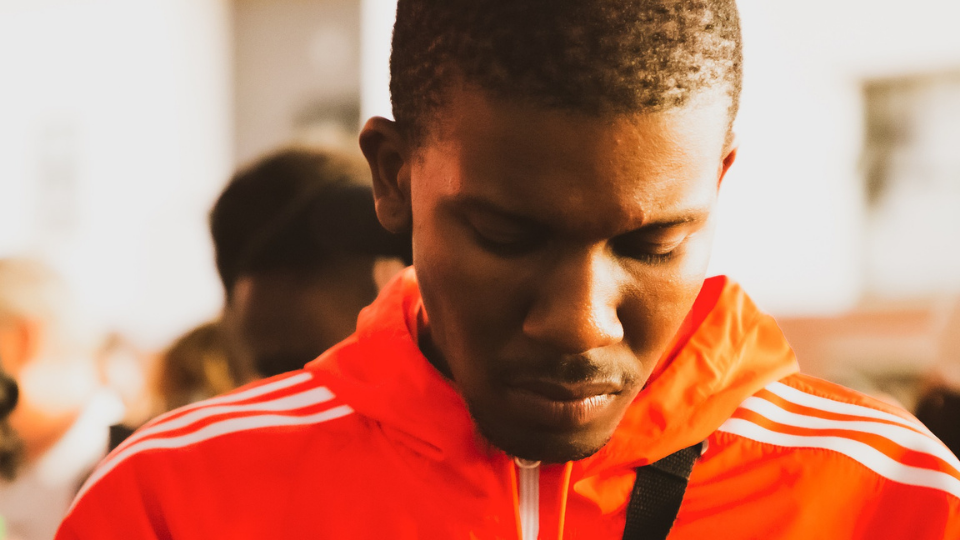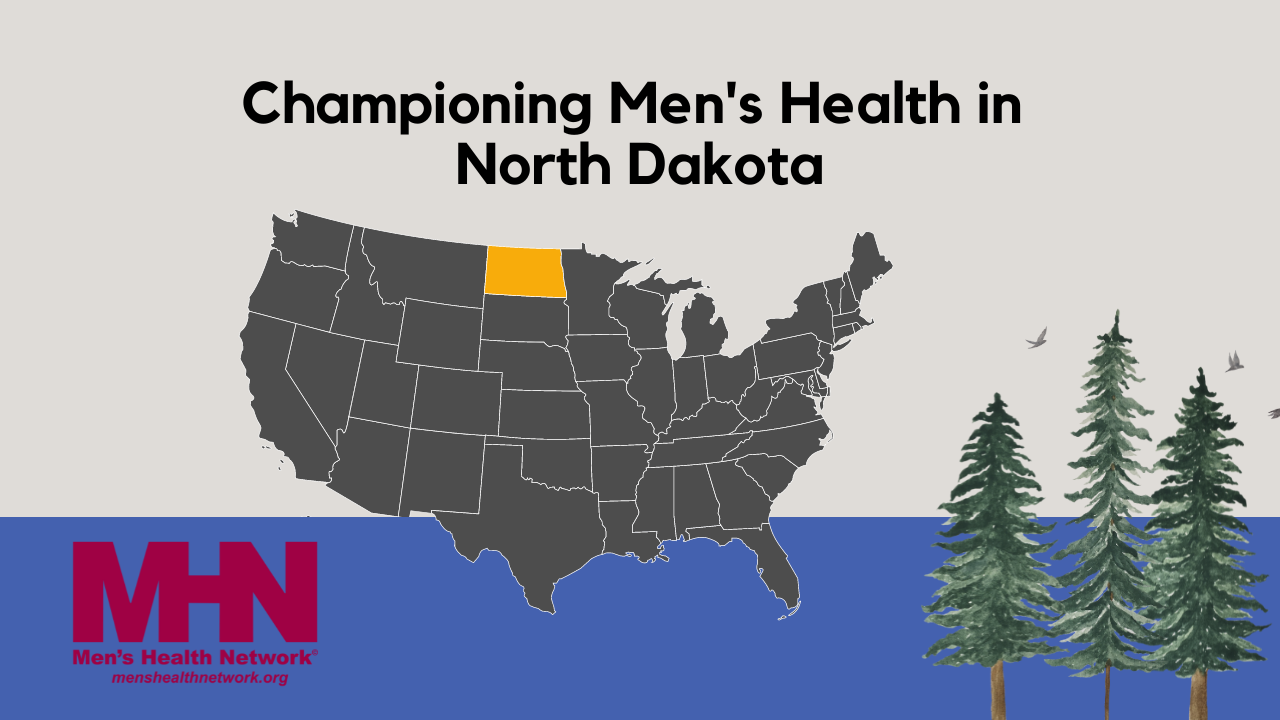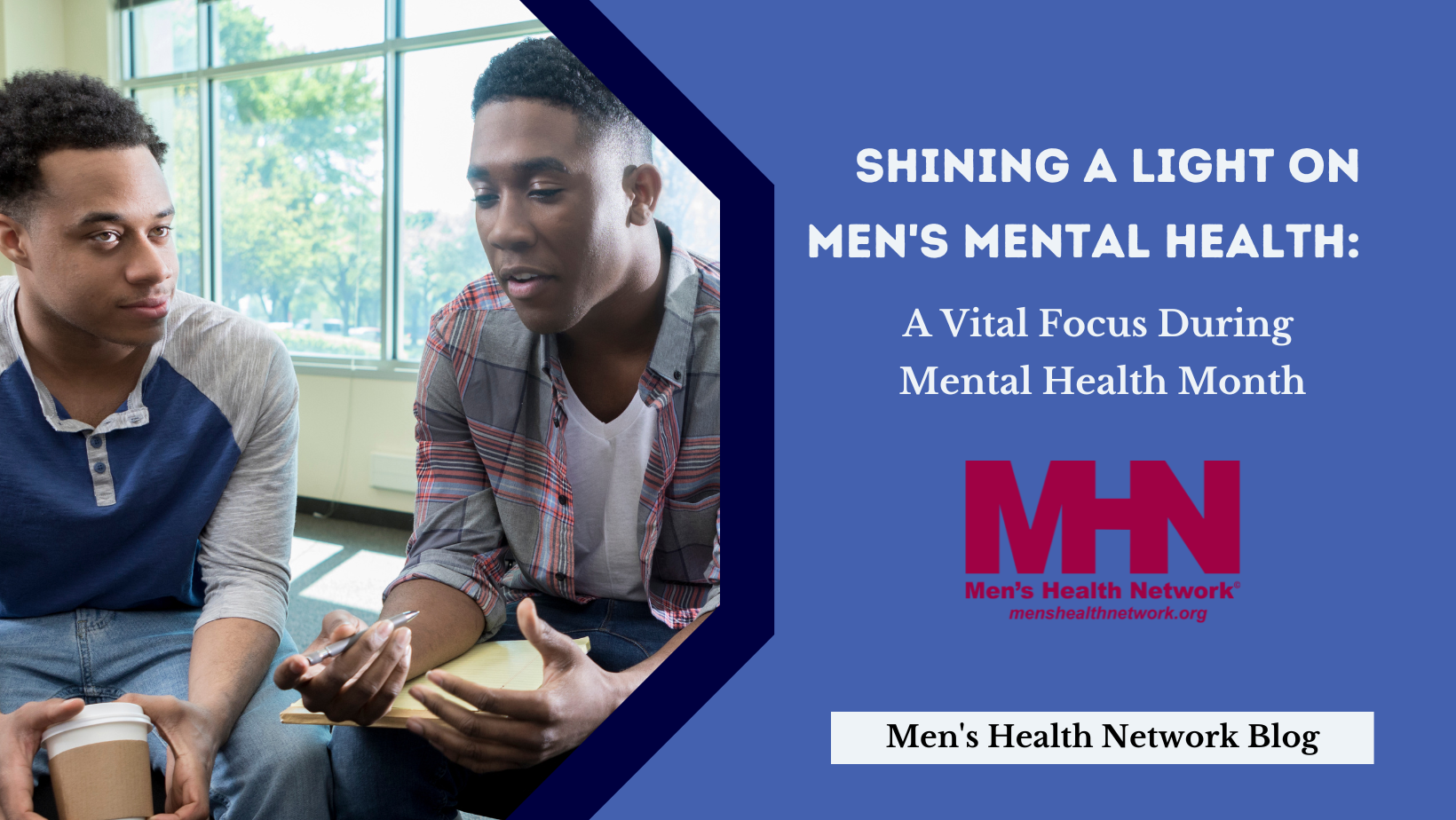Physical pain brings little judgement from others upon the person suffering. A man’s strength does not come into question when he grimaces in pain from his broken leg. The content of his character and his place within his community do not stand in judgement as he struggles to recover.
Yet what of injuries that hide from sight? The ones inflicted on a person by the world that surrounds them. Racism, discrimination, poverty— these larger forces that cause pain in both readily visible and silently terrible ways. The toll imposed on the mind feels as real to the man as his broken leg, but to speak of it and dare to treat it will present a much greater challenge.
Many Black men experience this invisible pain of inequality. Mental health organizations report higher rates of mental health distress in Black men than their white counterparts. Black adults are more likely to experience feelings of sadness, hopelessness, and worthlessness— emotions that tragically contribute to suicide as leading cause of death in young (15-24) Black men. Chronic and persistent mental health conditions appear more often in Black men, commonly masked by physical symptoms like pain or sleep disturbance rather than changes in mood.
Several societal factors place Black men at great risk for mental health challenges. In the U.S. 1 in 5 Black people live in poverty, with those below the poverty line being twice as likely to experience psychological distress. A study from the Journal of Black Psychology reports that Black men are often subjected to more psychosocial stressors, like racism and discrimination, than other individuals, leaving them more vulnerable to poor mental health. The most recent statistics from SAMHSA indicate that 4.8 million adults suffer from a mental illness, with 1.1 million also suffering from a substance use disorder. Binge drinking, smoking, drug use, and opioid misuse all occurred more frequently for African American adults also suffering from mental illness. Research suggests that substance abuse occurs more commonly as a symptom of depression in men than in women. The culmination of these societal stressors results in devastating outcomes for the mental health of many Black men.
The mental health community often falls short in responding to these largely unmet need for psychological support in the Black community. The National Alliance on Mental Illness states that only 1 in 3 Black adults in need of mental health services end up receiving them. Many Black men do not access mental health resources as readily as white men, even when experiencing daily feelings of anxiety or depression. National treatment rates of men with lifetime mood, anxiety, or substance use disorders shows that only 14% of men received care from professional mental health services compared to 29% who didn’t seek any help at all.
The disconnect between Black men and the mental health community occurs at multiple levels. Behavioral health services like therapy are expensive, often out of reach for many individuals without insurance. Accessing these services can also prove difficult for low-income communities that often lack quality mental health resources. Logistics aside, cultural stigma towards mental health can present one of the largest roadblocks to overcome in seeking treatment. Mental illness remains misunderstood by many, sometimes interpreted as weakness or another character deficiency within the individual. Fear of judgement and internalized beliefs about mental health may prevent Black men from accessing mental health resources.
Physician bias and lack of cultural competency in mental health treatment further harm the Black community. Misdiagnosis, lack of treatment, or improper treatment all occur more often for Black individuals than whites. Studies examining treatment disparities in African American men report that these men are more likely to receive a diagnosis of schizophrenia or other psychoses, while their white counterparts are more likely to be diagnosed with a mood disorder. Black men are also offered therapy and medication less often and are less likely to receive consistent quality care in line with treatment protocols. Instead of proper treatment and support, Black individuals with mental health conditions are more likely to end up in jail or prison than people of other races. The poor treatment of Black persons by some physicians and punishment of the mentally ill sews further distrust and fear towards the mental health community.
Increased use of behavioral health services in Black men requires an active, targeted approach. Men by and large do not respond as well to passive approaches like booklets or public service announcements on mental health. They also tend to not engage as often in health-related programs that do not specifically reach out to them. More successful outreach programs focus on peer-support tools for mental health. A study on Black male mental health and well-being found that significant others or trusted and respected individuals are critical in motivating men to seek out mental health services. Culturally competent programs that emphasize community support in behavioral health will likely see more success in their outreach efforts towards Black men.
Unsurprisingly, the study by Watkins and colleagues also found that Black representation within the outreach program proved more effective for promoting use of mental health services. The American Psychological Association currently only reports 4% of psychologists as African American. Promoting Black representation within medicine is crucial to building more culturally competent programs and providing better mental health support for Black men and their communities.




